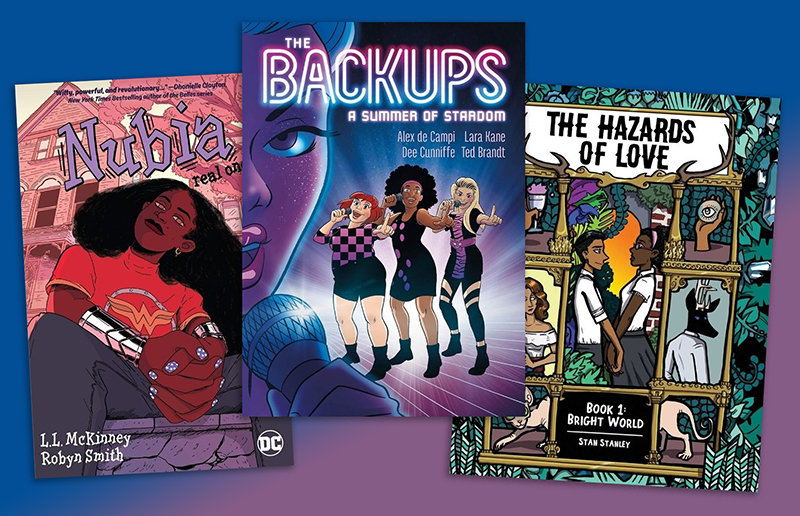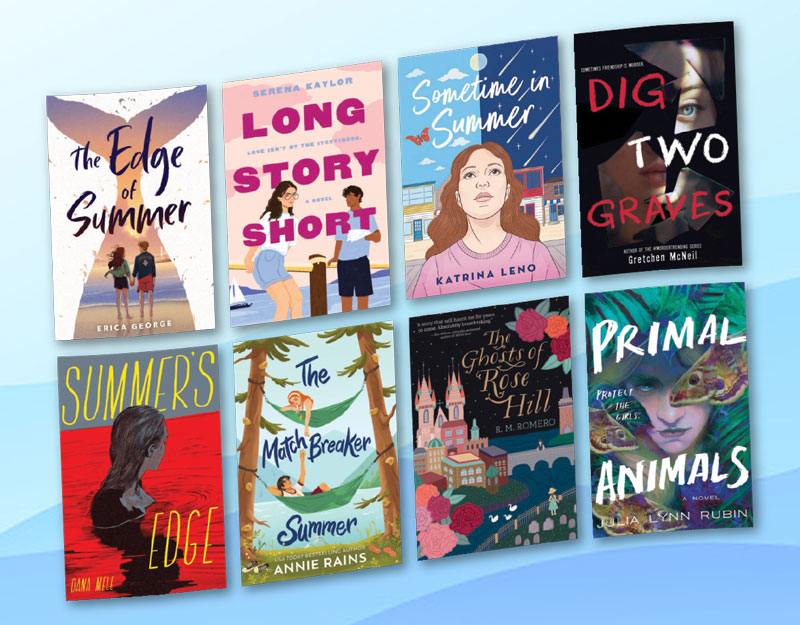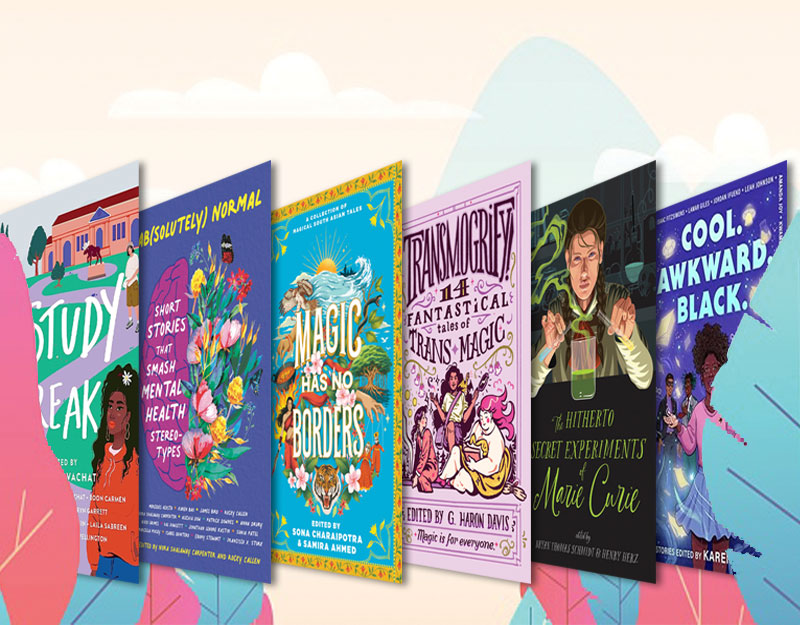Taking Steps to Decolonize Fantasy, a guest post by Jasmine Walls and Teo DuVall

The idea of decolonizing fantasy comes in many forms and the approaches will vary from person to person. Fantasy as a genre has long been steeped in expectations of Euro-centric settings, characters, and even the languages used for magic. Castles, white skin, often heterosexual with very binary genders, and spells spoken in Latin. What we aimed to do with BROOMS was to bring the focus on a cast of characters who are culturally diverse, who’ve been forced to the margins of society, and that don’t conform to a single rigid magic system.






It’s not possible to fully decolonize a story when it’s set in the post-colonial United States, but we can make sure that we let marginalized voices have the spotlight. BROOMS is set in 1930’s Mississippi, with a cast of six young women from very different backgrounds who each have their own reasons for evading the long arm of magical law enforcement. Mattie and Emma have just come into their powers, and are hoping to petition to learn magic from their own Choctaw elders, but it’s a costly process. Luella, their older cousin, has already paid the price of stumbling into her powers while at a residential school, and her magic was sealed away before she ever got a chance to train it. Billie Mae and Loretta are both Black, and have been keeping their powers secret, since it’s considered illegal in the Southern states for them to have magic. Cheng Kwan might not have as many legal restrictions on her magic, but she knows it would be dangerous to let her family know that their perfect ‘son’ is in fact a daughter.
ADVERTISEMENT
ADVERTISEMENT

Each girl enters the story with their own dreams and fears, but they find hope in the team they build, participating in illegal backwoods broom races to earn money for better lives. There are mentions of prestigious magic academies that the antagonistic characters attend, but we were very intentional about never seeing it on the page. The girls learn magic from knowledge they share with each other or that’s passed down in their families, influenced by their own cultures rather than what their government tells them is the ‘proper’ way to do magic.

As for the designs of the girls, it was important that they needed to exist beyond the visual stereotypes that are so common in the fantasy genre. We wanted them to be grounded in the people and cultures we were taking inspiration from; they needed to look real, like someone you would know or would see in a vintage photograph. Take Luella: her shoes, her shawl, her dress – all were practical for the sake of needing to work for a living, but also well kept and styled. There were many references of working-class young women in similar clothes, and giving Luella – a gay, Latina-Choctaw woman – such an outfit was very intentional.

We love to see stories where magic and those who wield it are taking steps away from colonial expectations; exploring magic that’s inspired by real cultures from around the world or created from scratch but anchored in the life experiences that don’t revolve around white, Euro-centric, and colonial expectations.

Some of our favorite examples of books that we think take strides in decolonizing the fantasy genre include: Black Sun by Rebecca Roanhorse, Jade City by Fonda Lee, The Monsters We Defy by Leslye Penelope, Cemetery Boys by Aiden Thomas, A Song of Wrath and Ruin by Roseanne A Brown, Phoenix Extravagant by Yoon Ha Lee, Barbarous by Ananth Hirsh and Yuko Ota, The Daevabad Trilogy and The Adventures of Amina Al-Sirafi by Shannon Chakraborty, and Squire by Sara Alfageeh and Nadia Shammas.

Meet the authors

Jasmine Walls is a writer, artist, and editor with former lives in professional baking and teaching martial arts. She still bakes (though she’s pretty rusty at martial arts) and has a deep love for storytelling, creating worlds, and building tales about the characters who inhabit them. Along with Levine Querido, she has works published with Boom! Studios, Capstone, Oni Press, The Atlantic, and The Nib. She lives in California with two dogs and a large stash of quality hot chocolate.

Teo DuVall is a queer Chicanx comic artist and illustrator based in Seattle, WA. They graduated in 2015 with a BFA in Cartooning from the School of Visual Arts and have had the immense pleasure of working with Levine Querido, HarperCollins, Dark Horse, Chronicle Books, Scholastic and more. He has a passion for fantasy, aesthetic ghost stories, and witches of color, and loves being able to create stories for a living. Teo lives with his partner, their two pets – a giant, cuddly pit-bull, and a tiny, ferocious cat – and a small horde of houseplants.
Jasmine is on Twitter @mythjaecomics and on Instagram @Mythjae, and Teo is on social at @little_corvus.
About Brooms
ADVERTISEMENT
ADVERTISEMENT
It’s 1930s Mississippi. Magic is permitted only in certain circumstances, and by certain people. Unsanctioned broom racing is banned. But for those who need the money, or the thrills…it’s there to be found.
Meet Billie Mae, captain of the Night Storms racing team, and Loretta, her best friend and second-in-command. They’re determined to make enough money to move out west to a state that allows Black folks to legally use magic and take part in national races.
Cheng-Kwan – doing her best to handle the delicate and dangerous double act of being the perfect “son” to her parents, and being true to herself while racing.
Mattie and Emma — Choctaw and Black — the youngest of the group and trying to dodge government officials who want to send them and their newly-surfaced powers away to boarding school.
And Luella, in love with Billie Mae. Her powers were sealed away years ago after she fought back against the government. She’ll do anything to prevent the same fate for her cousins.
Brooms is a queer, witchy Fast and the Furious that shines light on history not often told – it’s everything you’d ever want to read in a graphic novel.
ISBN-13: 9781646142682
Publisher: Levine Querido
Publication date: 10/10/2023
Age Range: 12 – 18 Years
Filed under: Guest Post
About Amanda MacGregor
Amanda MacGregor works in an elementary library, loves dogs, and can be found on Twitter @CiteSomething.
ADVERTISEMENT
ADVERTISEMENT
SLJ Blog Network
Endangered Series #30: Nancy Drew
Research and Wishes: A Q&A with Nedda Lewers About Daughters of the Lamp
Cat Out of Water | Review
ADVERTISEMENT







